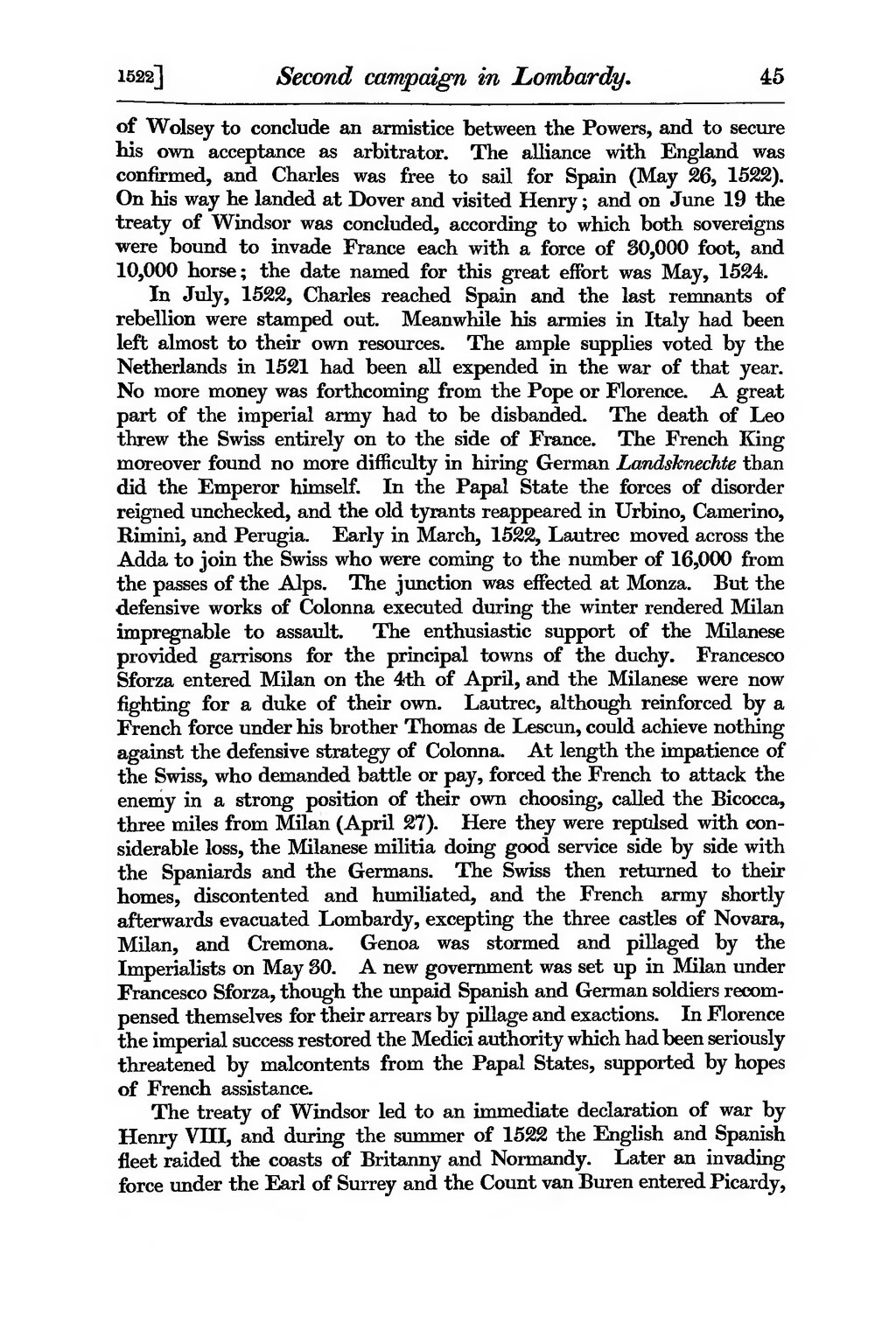of Wolsey to conclude an armistice between the Powers, and to secure his own acceptance as arbitrator. The alliance with England was confirmed, and Charles was free to sail for Spain (May 26, 1522). On his way he landed at Dover and visited Henry; and on June 19 the treaty of Windsor was concluded, according to which both sovereigns were bound to invade France each with a force of 30, 000 foot, and 10, 000 horse; the date named for this great effort was May, 1524.
In July, 1522, Charles reached Spain and the last remnants of rebellion were stamped out. Meanwhile his armies in Italy had been left almost to their own resources. The ample supplies voted by the Netherlands in 1521 had been all expended in the war of that year. No more money was forthcoming from the Pope or Florence. A great part of the imperial army had to be disbanded. The death of Leo threw the Swiss entirely on to the side of France. The French King moreover found no more difficulty in hiring German Landsknechte than did the Emperor himself. In the Papal State the forces of disorder reigned unchecked, and the old tyrants reappeared in Urbino, Camerino, Rimini, and Perugia, Early in March, 1522, Lautrec moved across the Adda to join the Swiss who were coming to the number of 16, 000 from the passes of the Alps. The junction was effected at Monza. But the defensive works of Colonna executed during the winter rendered Milan impregnable to assault. The enthusiastic support of the Milanese provided garrisons for the principal towns of the duchy. Francesco Sforza entered Milan on the 4th of April, and the Milanese were now fighting for a duke of their own. Lautrec, although reinforced by a French force under his brother Thomas de Lescun, could achieve nothing against the defensive strategy of Colonna. At length the impatience of the Swiss, who demanded battle or pay, forced the French to attack the enemy in a strong position of their own choosing, called the Bicocca, three miles from Milan (April 27). Here they were repulsed with considerable loss, the Milanese militia doing good service side by side with the Spaniards and the Germans. The Swiss then returned to their homes, discontented and humiliated, and the French army shortly afterwards evacuated Lombardy, excepting the three castles of Novara, Milan, and Cremona. Genoa was stormed and pillaged by the Imperialists on May 30. A new government was set up in Milan under Francesco Sforza, though the unpaid Spanish and German soldiers recompensed themselves for their arrears by pillage and exactions. In Florence the imperial success restored the Medici authority which had been seriously threatened by malcontents from the Papal States, supported by hopes of French assistance.
The treaty of Windsor led to an immediate declaration of war by Henry VIII, and during the summer of 1522 the English and Spanish fleet raided the coasts of Britanny and Normandy. Later an invading force under the Earl of Surrey and the Count van Buren entered Picardy,
